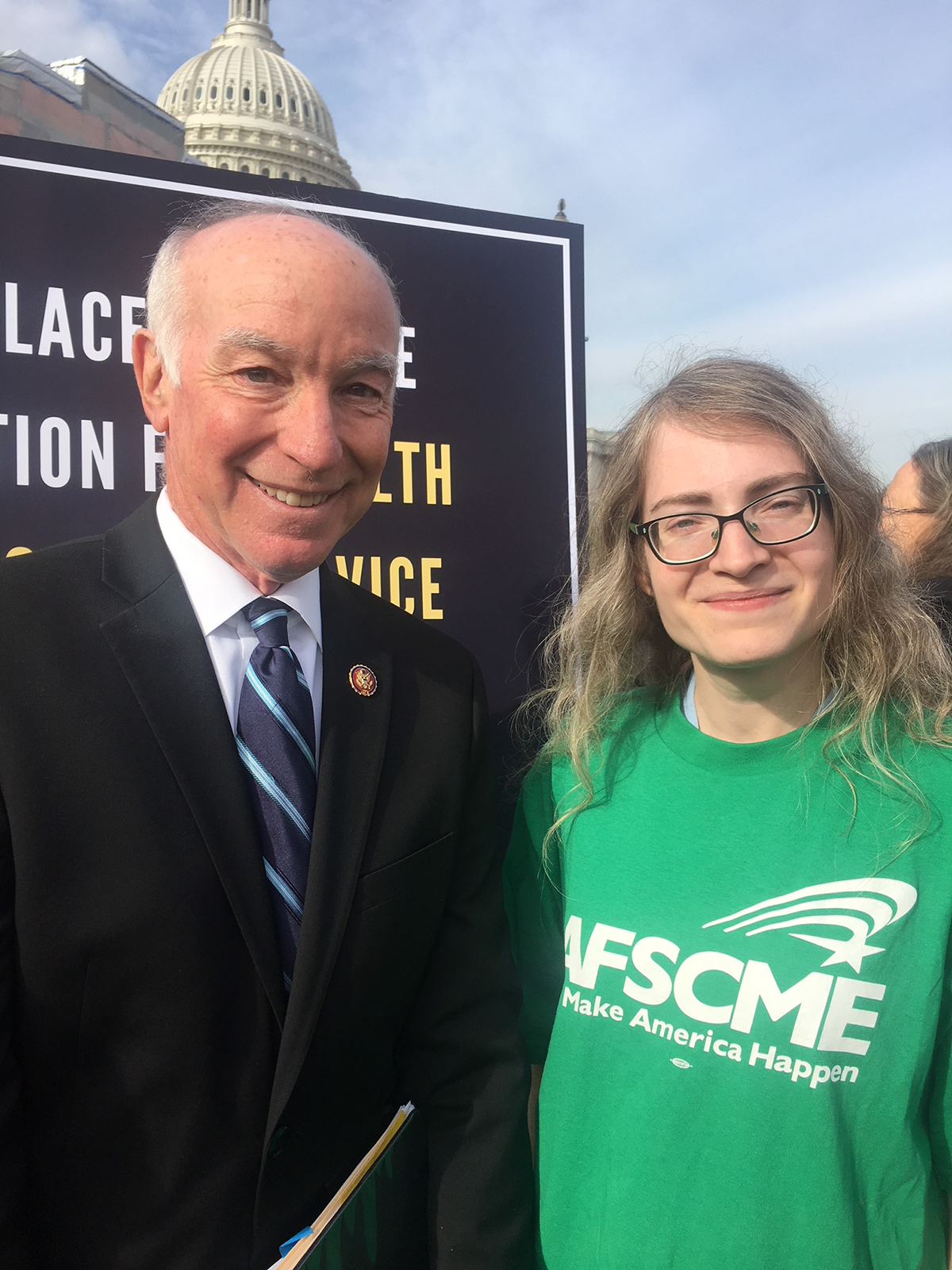
AFSCME members who work in health care and social services jobs face workplace violence daily.
Whether it’s emergency room nurses like UNAC member Elizabeth “Liz” Hawkins, who was assaulted by a patient; or Council 61 member and nurse, Tina Suckow, who was beaten at work and continues to experience debilitating injuries, these dedicated caregivers deserve robust, enforceable workplace protections against violence.
Now they are closer to having it.
The Workplace Violence Prevention for Health Care and Social Service Workers Act, H.R. 1309, was passed in the House today by a vote of 251-158. It will help protect hospital, psychiatric, behavioral health care, emergency medical services (EMS) workers and others by requiring the Occupational Health and Safety Administration (OSHA) to issue a federal worker-protection standard.
Employers in the health care and social service fields will need to adopt tailored, specific plans aimed at protecting their employees from workplace violence. They will also be required to identify and control hazards, improve reporting and offer training for workers and management, among other steps.
In a statement, AFSCME President Lee Saunders said, “Our health care and social service workers deserve to be safe at work and to go home to their families at the end of the day. We celebrate the passage of this bill as a major step forward in ensuring that workers are protected and urge the Senate to take this bill up.”
During a press conference celebrating the bill’s passage, Miriam Doyle, a social worker at a maximum security state psychiatric facility and member of Local 557 (AFSCME Maryland Council 3), described the dangers she faces and explained how the law will improve her safety.
“I know I am dealing with men who have committed serious, violent crimes,” said Doyle. “I have been threatened by patients with physical or sexual assault as I walked across a common area to access a locked door.”
Doyle went on to say, “H.R. 1309 is a game changer because OSHA will have a real deadline to issue a rule on preventing workplace violence. My employer will have to seriously look at how their understaffing has contributed to my co-workers and myself facing violence at work.”
AFSCME members played an important role in the bill’s passage by sharing their stories with Congress, not only of the workplace violence they have experienced, but also by describing how safer workplaces will allow them to better serve their communities.
Members like Nevada Local 4041’s Patricia Wright, a mental health technician, described having suffered numerous incidents of workplace violence treating the mentally ill; AFSCME Oregon members Chaz and Scott described being stabbed at the homeless youth and addiction facility where they worked; and Christa Butters, a licensed practical nurse and AFSCME Council 28, Washington Federation of State Employees (WFSE) member, recounted being assaulted by patient at the state psychiatric hospital where she was employed.
If the measure becomes law, these caregivers will have workplace violence prevention plans that will curb violence while improving the quality of patient care.
According to an OSHA fact sheet, workplace assaults in health care and social services settings account for more than 70% of all non-fatal assaults on the job.
The range of violence can vary, from verbal assaults to extreme physical harm. Some pay the ultimate price for their dedication. We continue to mourn the loss of Council 31 member Pamela Knight, a child protection investigator who was attacked while checking on the welfare of a minor, and died from her injuries.
Regardless of the nature of workplace violence, however, the community of caregivers emphasize that it’s important not to stigmatize people with mental health conditions. Rather, employers must bear the responsibility to develop, implement and reassess policies to prevent workplace violence. Now, with the passage of this bill, they’ll have a mechanism to do so.